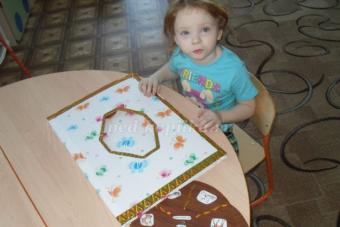Today, December 14, 2017, they also celebrate the Day of honoring the participants in the liquidation of the consequences of the accident at Chernobyl nuclear power plant and other events.
December 14, 2017 is the national holiday of Naumov Day. The Church remembers on this day the prophet Nahum, who was nicknamed the Literate by the common people - on this day, grown-up children were given to the elders who taught them to read and write.
According to legend, the saint was one of the 12 minor prophets. Naum was born in the 7th century in Galilee (the village of Elkosha).
The Old Testament book written by him, which was included in the Holy Scriptures, is very famous. In it he predicted intkbbee the death of one of the Assyrian cities - Nineveh. The reason for the fall of Nahum was the lawlessness that was happening there, the insults of Jehovah by King Sennacherib, and the destruction of the kingdom of Israel. When the prophecy was fully fulfilled, his name began to be associated with the mind.
On this day, the children were sent to school. Mothers cried loudly, as the first acquaintance of their children with the teacher was accompanied by symbolic three blows with a whip (rods). The students began the subsequent classes with 3 bows to their mentor. For the fact that children are taught knowledge, parents gave the teacher chicken, eggs and other products.
According to signs, if the wind blows from the north or begins to change its direction from south to west, then frosts will soon come.
If at night the stars shimmer in the sky, then expect an early blizzard.
If today the dogs bark deafly - there will be snowfall, and if the night sky is strewn with stars, then the next day a severe frost will hit.
Day of honoring the participants in the liquidation of the consequences of the accident at the Chernobyl nuclear power plant
On April 26, 1986, one of the largest accidents occurred at a nuclear power plant in Ukraine. By decree of the President of 2006, a memorial date was set on November 10 in honor of this terrible event. Specialists who consider December 14 their holiday have long called such a day Liquidator's Day. Such an event can once again remind all residents of the problems of the Chernobyl liquidators.
Day of Remembrance for the Victims of the Latin Tragedy
Traditionally, on December 14 in Abkhazia, citizens who died in Patriotic War people of Abkhazia from 1992 to 1993. in 1992 this number during the Georgian-Abkhazian war near the Kodori Gorge above the village of Lata. Georgian State Council troops shot down a Russian helicopter. As a result of this act, about 84 people died, there were 35 children right there. Among the victims of the Latskaya tragedy were 8 pregnant women. The remains were buried in the city of Gudauta. Every year a memorial meeting is held here, which is dedicated to the victims of the Latin tragedy. A memory rally can be seen in the city of Tkuarchal near the memorial, which was installed at the site of the helicopter takeoff.
Dmitry, Naum, Porfiry.
- 1542 - Mary Stuart was declared Queen of Scots.
- 1720 - Escaping from Paris from ruined investors, the English adventurer and economist John Law secretly fled.
- 1893 - in Moscow on Red Square, the Upper Trading Rows were solemnly opened.
- 1911 - Ronald Amundsen reached the South Pole, a month ahead of the English expedition of Robert Scott.
- 1947 - the Council of Ministers of the USSR and the Central Committee of the All-Union Communist Party adopted the decree "On the implementation of the monetary reform and the abolition of cards for food and industrial goods."
- Nostradamus 1503 - French physician and scientist.
- Tycho Brahe 1546 - Danish astronomer, alchemist and astrologer.
- Zinaida Voklonskaya 1792 - Russian princess and writer.
- Nikolai Shcherbina 1821 - Russian poet.
- George VI 1895 - King of Great Britain.
- Nikolai Basov 1922 - Soviet physicist and academician.
- Raj Kapoor 1924 - Indian actor and film director.
Nahum is one of the 12 so-called minor biblical prophets. He was from Elkosh, a city in northern Israel, and preached during the reign of Hezekiah, between 727 and 698 BC. e. He died, according to legend, at the age of 45 and was buried in his native land.
The Old Testament book of the prophet Nahum - a formidable prophecy about the death of the Assyrian capital of Nineveh, and with it the entire Assyrian kingdom - is a poem with many comparisons and metaphors, the literary merits of which many researchers put above any other of the books of the minor prophets.
Reports about the power of Assyria already around 2000 BC. e., and in 1230 she already dominated Asia. From 860 to 761, the country increased its power. Her culture was even higher than that of Egypt: a well-thought-out state administration, the art of irrigating fields, an unusual fantasy in decorating houses, rich trade.
The convenient location of Nineveh - at the crossroads of all the trade and military routes of Europe, Asia and Africa - allowed her to accumulate huge wealth, and completely corrupted the people (Jon. 1: 2): in the city "they lived carelessly, saying in their hearts:" there is none else but me" (Zeph. 2:15).
Powerful Assyria built all its well-being on blood and robberies - it spent public policy robbery: the Assyrians usually went to war against a people and, having defeated its army, resettled the defeated tribes in another land in order to uproot, destroy, if possible, a sense of national identity, making them more pliable and meek.
Having conquered many countries - Syria, Palestine, Babylon - Assyria devastated these lands, destroying dozens of cities and enslaving hundreds of thousands of their inhabitants. And strong opponents who could pose a danger to her dominion were brutally destroyed: they crucified, burned, cut off parts of the body, sawed ...
Prophet Nahum calls this city a city of blood, full of deceit and murder. Nineveh personifies for him the enemies of God, she became like a harlot of a pleasant appearance, who deceives the nations and seduces them to the worship of false gods.
When all of Judea was already in the power of the Assyrians and only Jerusalem remained, on which the Assyrian king Sennacherib directed all his forces, the Jewish king Hezekiah called for God's help, and He miraculously destroyed the enemy. But the Jews were afraid that Sennacherib, angered by his failure, would gather an army larger than before and appear again (2 Chronicles 32:2-8).
And in order to calm and encourage the Jewish people, the prophet Nahum turned to him, predicting the final destruction of Nineveh, which would be destroyed by a strong flood of waters, and the treasures of the city would be plundered and destroyed by fire.
But Nineveh was at the height of her glory, and no one believed him. In addition, a hundred years before that, the prophet Jonah had already predicted the destruction of Nineveh (Jon. 2:2), but after his sermon the Ninevites repented, and the prophecy was not fulfilled.
However, historians of ancient times testify that 23 years after the prophecy of Nahum, Nineveh really fell. Moreover, this time the prophecy was literally fulfilled: besieged by the Medes in alliance with the Babylonians (about 612 BC), she steadfastly withstood the siege for three years, and only the overflow of the Tigris River, which washed away the city walls, made it possible for the enemies to enter the city and destroy it to the ground. .
And King Sardanapal, fearing captivity, ordered a large fire to be built in his palace and burned himself along with all the treasures and concubines. Thus the terrible words of Nahum and another great prophet, Isaiah, were fulfilled (Isaiah 30:33).
Nineveh was never rebuilt, its location was forgotten until 1845, when the archaeologist Layard found its ruins.
In Russia, the prophet Nahum was traditionally prayed at the beginning of the teaching - for admonition and help in comprehending science. And on the day of his memory, children began to learn to read and write.

Holidays December 14, 2019
Day of honoring the participants in the liquidation of the consequences of the accident at the Chernobyl nuclear power plant in Ukraine
The accident at the Chernobyl Nuclear Power Plant (ChNPP) occurred on April 26, 1986.
In 2006, on November 10, by the Decree of the President of Ukraine, the Day of honoring the participants in the liquidation of the consequences of the accident at the Chernobyl nuclear power plant was established, annually celebrated from that time on December 14. Various events and rallies dedicated to the events of these days are held throughout the country on this day, flowers are laid at the monuments of the dead liquidators, prayers and memorial events are held.
The construction of the sarcophagus over the destroyed fourth power unit of the Chernobyl nuclear power plant was completed on November 30, 1986. On December 14 of the same year, the state commission accepted the complex of protective structures into operation. This day became the Day of the liquidator.
The first time the participants of the liquidation gathered to celebrate the victory together was in 1986.
And in 1994 public organizations Chernobyl victims of Ukraine sent a letter to all leaders of the state with a proposal to establish the Day of participants in the liquidation of the Chernobyl disaster in the calendar. But no decision was made that year, and the liquidators began to celebrate this date on their own.
Later, the celebration of this Day was adopted officially. On this day, various power structures allocate a guard of honor, lay wreaths from the leaders of different states.
The state status of the Liquidator's Day in Ukraine reminds the public of the problems of Chernobyl liquidators. AT Russian Federation The Day of the Liquidator became an official holiday in April 2012, when the President of the Russian Federation Dmitry Medvedev signed the Federal Law, according to which a new memorable date was established in Russia - April 26 - the Day of participants in the liquidation of the consequences of radiation accidents and disasters and the memory of the victims of these accidents and disasters.
Day of Prosecutors in Tajikistan
The bodies of the prosecutor's office of the Tajik SSR were formed in 1924 and since then the Tajik prosecutor's office, performing its special functions, has been guarding the rights and legitimate interests of citizens.
The prosecutor's office of Tajikistan has gone through difficult stages in its development. The priority areas of work of the Tajik prosecutor's office have always been: protecting the legitimate interests of the state, overseeing the observance of the rights of a citizen, combating crime, overseeing the observance of laws by authorities.
Currently, about 1 thousand people work in the bodies of the Prosecutor's Office of the Republic of Tajikistan.
Religious holiday
Naum on mind
What a church holiday today everyone knew in Christians in Russia. On this day, Orthodox Christians celebrated the memory of the holy prophet Naum, who lived before the birth of Christ in the 7th century in Galilee. About the life of Naum, almost no information has survived to our time, but a book of prophecies is known, which Nahum wrote in 663 BC after the fall of Thebes.
The events described in the book of Nahum take place in the capital of the powerful Assyrian kingdom of Nineveh. Naum in his book predicted a severe but fair punishment for the sinful inhabitants of this city. After the appearance of this book of prophecies, the state of Nineveh fell under the blow of enemies, was completely destroyed and ceased to exist.
The prophet Nahum in Russia was considered the patron of sciences and literacy. Our ancestors used to say: "Nahum guides the mind." On this day, children were taught to parish clerks.
This event was celebrated ceremonially. In the morning, the family went to church, where after the service they asked for blessings for their studies. At home, after dinner, they met the teacher, introduced the student to him and treated him. The lad made three earthly bows to the teacher, and in response the teacher symbolically gave him three light blows with a whip. The children had to obey the teacher implicitly. Teachers after the first lesson gave a loaf of bread on an embroidered towel, in which they tied money as payment for classes. Classes to the teacher were mainly paid for with food, parents brought a basket of eggs, a chicken, a pot of buckwheat porridge. The mother, according to custom, on this day was supposed to lament for her children, who went to study, because the teaching was accompanied by the hammering of sciences with rods.
This day was called "wise", so on this day they prayed for wisdom, asking to "think", "instruct the mind."
Name day December 14 with: Dmitry, Naum, Porfiry
Unusual holidays
Gum Day
Gum Day is one version of the Gum Day holiday. What is the best way to celebrate such a special day? Considering the originality of the event, it is necessary to consider festive table and choose the right drinks, because this is what will surprise your faithful comrades.
What to feed your friends?
Despite the fact that chewing gum is traditionally prepared in industrial conditions, this product is becoming available even for home cooking. To implement a unique idea, you will need the following ingredients:
Five tablespoons of lemon juice.
300 milliliters of sugar syrup.
100 milliliters of water.
A teaspoon of starch.
20 grams of gelatin.
100 milliliters of fruit juice.
Cooking pleases with simplicity, but you need to remember the following rules: the ingredients are mixed gradually, because first you need to prepare sugar syrup with a flavor, and then mix it all with starch and swollen gelatin. The chewing gum will turn out tasty if it is possible to achieve a homogeneous consistency and the product is aged in the refrigerator for about 6 to 8 hours.
What drink?
For Gum Day, you need to pick up light classic drinks and sparkling water:
Non-alcoholic mojito.
Lemonade.
Green tea.
Carbonated drinks - Fanta, Coca-cola, Spite.
The above drinks will allow you to experience the best facets of homemade chewing gum.
What to wish?
Despite the fact that Gum Day involves a light friendly party and an extraordinary diet, it is advisable to put as many bright and real feelings and emotions into the wishes as possible.
The main line of the wish should be the desire to set the right path in proper and nutritious nutrition, care for good health and maintaining strength, energy, inspiration. Corresponding wishes can be appreciated not only by close people, but also by good friends.
On December 14th you can also celebrate:
- Day of antics in front of the mirror
— World Vaseline Day
- Day of a beautiful female breast
- Day of struggle with someone else's obsessive opinion
world calendars
Gregorian calendar: December 14, 2013 - Saturday, week 50, day 348 of the year
Julian calendar: December 1, 2013
Jewish calendar: 11 Tevet 5774
Islamic calendar: 10 Safar 1435
Chinese calendar: 12th day of the 11th month of the 30th year of the 74th cycle (snake, black, water)
National calendar of India: 23 Agrahayan 1935
Indian moon calendar: 12 Margashirsha 2070 Vikram era - Bharani constellation
Persian calendar: 23 Azar 1392
Baha'i calendar: 1 kull-i shay 9 wahid 18 year (Abha) 15 month (Masail) 3 day (Jamal)
May calendar (Long count): 13 baktun 0 katun 0 tun 17 uinal 18 kin
Calendar "May" (Short account - Haab): 16th day of the month "Poppy"
Calendar "May" (Short account - Tzolkin): 11th day of the month "Ben"
French calendar: 4 days (Kvartidi) 3 decades 3 months (Frimera) 222 years
All holidays for today
Day of honoring the participants in the liquidation of the consequences of the accident at the Chernobyl nuclear power plant (Ukraine)
Day of Prosecutors (Tajikistan)
Alabama State Day (Alabama, USA)
Statehood Day (Alabama, USA)
Day of Remembrance of Children Who Died in the War (Abkhazia)
Tortured Intelligentsia Day (Bangladesh)
Victory day of Ali ibn Abu Talib in the battle of Nahravan (Shia)
Day of Suffering Janab-e-Sakin (Shia)
30th day of Ashura (Shia)
International day probation free programs(USA)
Monkey Day (International)
Naumov day (Ancient Slavs)
National Garlic Fish Chowder Day (USA)
National Horse Day (USA)
Today is December 14 (December 1, old style), Orthodox Church celebrates Religious holiday Orthodox:
* Prophet Nahum (VII century BC). Righteous Philaret the Merciful (782).
Saints Porfiry, Patriarch of Antioch (413); Ananias, Bishop of Ephesus. Martyrs Ananias of Persia; Tut, Lochitron and Candida. Saints Anthony the New; Satornik; Demetrius Trischaleus and Kallinikos.
Prophet Nahum
St. Prophet Naum - from 12 minor prophets. He hails from Elkosh, a city in northern Israel, and preached during the reign of Hezekiah, that is, between 727 and 698. BC e. It is believed that he prophesied during the reign of the Jewish king Hezekiah, when the kingdom of Israel was destroyed. He predicted the destruction of Nineveh. The Old Testament book known under his name contains a vivid picture of the religious, moral and political state of Israel and gives many indications of the history of Assyria. The book of the prophet Nahum is a consistent presentation of God's formidable determination about the death of Nineveh because Sennacherib came out of it, plotting evil against Jehovah, and the kingdom of Judah is predicted to be freed from the yoke of Assyria. It is explained that Nineveh deserved such a fate with her idolatry, especially with her debauchery and witchcraft, through which she enslaved the peoples. Therefore, no means of protection will save her, and all nations will rejoice that they have got rid of such a cruel oppressor. According to legend, he died at the age of 45 and was buried in his own country. He left behind a book consisting of three chapters.
Righteous Filaret the Merciful
St. Philaret, nicknamed the Merciful for his special mercy to the poor, lived in the Asia Minor region of Paphlagonia, in the city of Amia, during the reign of Tsar Constantine and his mother Irene, in the 8th century. He was married and had children. St. Philaret came from noble and pious parents and was very rich, but did not enjoy wealth. Constantly thinking about the future life, he loved the poor and the poor and gave them generous alms, and in general, no matter who asked him for anything, no one was refused. The Lord was pleased to test St. Filaret is patient, like the once righteous Job.
The Arabs attacked Paphlagonia, robbed the inhabitants, and at St. Filaret was left with only two oxen, one cow and the house where he lived. But he did not grieve over his loss, but, like Job, surrendered to the will of God and did not stop helping the poor with his last good. So, he gave first one, and then the other of his ox to the villagers, whose oxen fell in the field, he gave the cow, even with the calf, so as not to separate the calf from its mother; gave away his last clothes and bread. The wife and children grumbled at the saint, but he comforted them, saying prophetically: “I have so many treasures that if you live another hundred years, you will have everything in abundance.” And indeed, the Lord returned wealth to Filaret.
Empress Irina, wishing to marry her son Konstantin, ordered to gather noble and beautiful girls to choose a bride from them Konstantin. Among the brides, one of Filaret's granddaughters, Maria, was introduced to the palace. The king liked her the most and became queen. St. Philaret rose and became rich again, and then his hope in the Lord came true. The wife and children confessed their insults done to him and asked for forgiveness. St. Philaret, even having risen, did not cease to be humble and kind.
Once he ordered his household to arrange a dinner for the king and nobles, but he brought the poor and the crippled and treated them himself, sitting with them. Before his death, he bequeathed to the children to live the same way he lived - to be pious and kind to the poor and needy. Many tears were shed at the grave of St. Philaret: all the poor and wretched yelled and sobbed. Many miracles took place at his grave. Soon after the death of one of the relatives of St. Filaret saw him in a dream, sitting on a golden throne and surrounded by saints.





